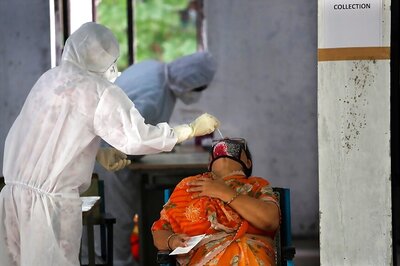
views
A new study now says that schizophrenia could one day be detected using tests in human hair that could detect levels of certain enzymes. According to a story published in The Daily Mail, tests have shown that patients who suffer from severe mental health disorders have much higher levels of MPST compared to those who don't.
The result of the study was published in the EMBO Molecular Medicine. The study, conducted by researchers at the RIKEN Center for Brain Science, on the outskirts of Tokyo, saw scientists looking for levels of the enzyme in hair that could help find out the condition before patients started suffering from hallucinations.
The scientists have, since then, said they have started testing whether drugs designed to tackle production of the enzyme that could alleviate symptoms in mice. Schizophrenia as a condition does not have any determining test for the disorder with scientists being able to diagnose the conditions after patients have been suffering from the condition for a month or so.
Study authors began by studying two groups of mice. One of the groups had low prepulse inhibition (PPI), which is a sign of schizophrenia while the other had higher PPI, meaning bursts of noise managed to affect them more.
Results from the study showed that mice that showed tell-tale sign of schizophrenia had far more MPST -- an enzyme that produces hydrogen sulphide in the brain.
Dr Takeo Yoshiwaka, study author and colleagues proved MPST was to blame for schizophrenia by analysing genetically modified mice. The researchers also looked at post-mortem brain samples of schizophrenia patients and compared them to that of people unaffected by the disease.
They found that the levels of MPST seemed to correlate with the condition of the symptoms suggesting that higher levels may cause patients to suffer from more hallucinations. A team of doctors headed by Dr Yoshikawa examined hair follicles of 300 people. Out of 300, half were suffering from schizophrenia. They found that much like in mice, the level of MPST was far greater in patients with mental health disorder than those who were not suffering.
Dr Yoshikawa said that they are currently testing whether hindering the synthesis of hydrogen sulphide could reduce symptoms in mouse models of schizophrenia.
Follow @News18Lifestyle for more



















Comments
0 comment